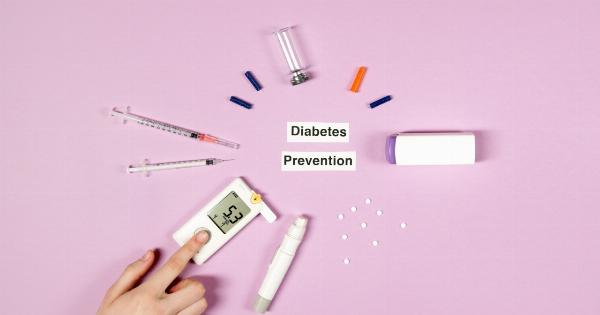When it comes to our health and well-being, nutrition plays a crucial role. The food we consume on a daily basis provides our bodies with the necessary nutrients to function optimally.
Over the years, there has been a growing discussion about whether dietary recommendations should differ based on gender. Are men and women’s nutritional needs fundamentally different, or is it just a myth? In this article, we will explore the truth behind gender-specific dietary recommendations and determine if they are based on solid facts or merely fiction.
The Impact of Gender on Nutrition
While it is true that men and women have some physiological differences, such as hormonal variations and variance in body composition, the impact of gender on overall nutritional needs is often overstated.
The basic principles of a healthy diet, such as consuming a balanced mix of macronutrients (carbohydrates, proteins, and fats) and an adequate intake of vitamins and minerals, apply to both genders.
It is essential to recognize that individuals have unique nutritional requirements based on their age, activity level, genetics, and overall health status, rather than solely on their gender.
Nutritional needs can also vary significantly within each gender, depending on factors such as height, weight, and metabolism.
Evidence-Based Guidelines
When it comes to formulating dietary guidelines, experts rely on evidence-based research and large-scale studies to establish recommendations that suit the general population’s needs.
These guidelines are often designed to address the nutritional requirements of the majority, with an understanding that individual needs may vary.
The majority of scientific studies investigating nutrition do not differentiate between men and women in their recommendations. Instead, they focus on providing guidelines that promote overall health and well-being for the entire population.
This approach allows individuals to tailor their diets based on their unique characteristics and needs, rather than solely focusing on their gender.
Myths About Gender-Specific Diets
Despite the lack of concrete evidence supporting gender-specific dietary recommendations, various myths have emerged that perpetuate the idea of a male or female-centric diet. Let’s debunk some of these common misconceptions:.
1. Myth: Men Need More Protein
It is often believed that men require a higher protein intake compared to women due to their typically higher muscle mass.
While protein is essential for muscle growth and repair, the difference in protein requirements between men and women is relatively small. The Recommended Daily Allowance (RDA) for protein is generally the same for both genders, with slight variations based on factors such as weight and activity level.
2. Myth: Women Should Avoid Carbohydrates
There is a misconception that women should limit their carbohydrate intake to maintain a certain body weight. However, carbohydrates are a crucial energy source for the body, and both men and women require them in adequate amounts.
The type and quality of carbohydrates consumed are more significant factors than gender when it comes to maintaining a healthy weight.
3. Myth: Women Need More Calcium
It is true that women have a higher risk of developing osteoporosis, a condition characterized by weakened bones. Calcium, along with vitamin D, plays a crucial role in maintaining bone health.
However, while women may require slightly more calcium than men due to their higher risk, the difference is not significant enough to warrant separate dietary recommendations.
4. Myth: Men Should Consume More Calories
It is commonly believed that men need to consume more calories than women to support their higher muscle mass and metabolic rate.
While it is true that men generally have a higher basal metabolic rate (BMR) compared to women due to their higher muscle mass, the difference in calorie requirements is not substantial. Individual variations based on activity level and body composition are more influential factors.
5. Myth: Men Need More Fat
Another myth suggests that men should consume a higher amount of dietary fats compared to women. While fats are essential for various bodily functions and hormone production, the overall fat requirements do not significantly differ between genders.
Both men and women should focus on consuming healthy sources of fats, such as avocados, nuts, and olive oil, in appropriate portions.
Understanding Individual Needs
It is crucial to understand that each person has unique nutritional needs that may differ significantly from others, regardless of their gender.
Factors such as age, genetics, activity level, and overall health play a more substantial role than gender alone.
Rather than blindly following gender-specific dietary recommendations, individuals should focus on understanding their own bodies and tailoring their diets to meet their specific needs.
Consulting with a registered dietitian or nutritionist can provide valuable insights into personalized nutrition plans based on individual characteristics and objectives.
Conclusion
The concept of gender-specific dietary recommendations has garnered attention over the years, but the evidence supporting its validity remains limited.
While men and women may have slight physiological differences, such as hormonal variations and body composition, the impact on overall nutritional needs is minimal. Nutritional requirements are primarily influenced by individual characteristics rather than gender alone.
Instead of relying on gender-specific guidelines, individuals should prioritize understanding their unique nutritional needs and goals.
By emphasizing a balanced and varied diet that suits their requirements, they can optimize their health and well-being.





























